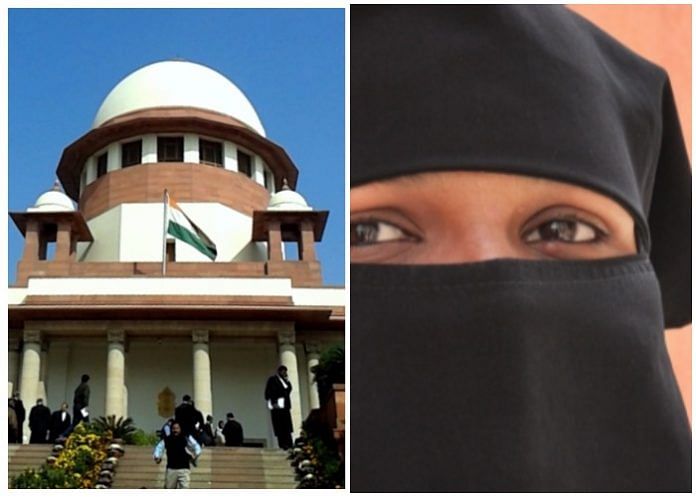The article has been written in response to an article published on ThePrint titled ‘SC judgement on triple talaq: What’s monumental about it and what’s not‘
I was amazed to read the article by Alok Prasanna Kumar in ThePrint. It said that the judgement is monumental for having struck down a law for the first time on the ground of arbitrariness. It also said that all earlier instances when the Apex Court used the arbitrariness ground was only for striking down executive action.
I do not now whether Judges Nariman and Lalit would have read that piece. If they did, they would be squirming with embarrassment. They spent nearly 50 pages discussing the points, (a) that arbitrariness was different from discrimination within the sweep of Article 14, and (b) that laws can be struck down, and have been struck down on the ground of arbitrariness alone.
How this point can escape anyone who read the full judgement is beyond me. Suffice to say that Justice Nariman advanced the famous dictum first discussed in EP Royappa judgement that “non-arbitrariness pervades Article 14 like a brooding omnipresence”. They fleshed out the Royappa case, the Maneka Gandhi case, and the Ajay Hasia case to buttress the constitutional principle, and then distinguished the McDowell case by citing many instances where the Apex Court struck down laws on the ground of arbitrariness.
Main cases cited include Mithu v State of Punjab (Section 303 IPC was struck down as arbitrary), Mardia Chemicals, Malpe Vishwanath Acharya and the recent case of Subramanian Swamy pertaining to Section 6-A of the Delhi Special Police Establishment Act was struck down as discriminatory, but also answered the question of being arbitrary.
I would also like to take the opportunity to discuss Pratap Bhanu Mehta’s argument that the minority judgement was wholly regressive, and a general argument that Justice Kurian’s judgement is not on the basis of violation of fundamental rights.
The minority judgement has correctly held triple talaq to be a religious practice, and hence a fundamental right. That it also treated it as an integral religious practice was not agreed to by Justice Kurian, and rightly so.
The minority judgement also suffers from the vice of not recognising the factum of Right to Religion being a secondary right, having been specifically made subject to “Other Rights in this Part”, i.e. to other fundamental rights. However, the minority judgement did recognise the State’s authority to legislate on economic, financial, secular and political aspects associated with religious practice as provided in Article 25(2), and accordingly asked the State to bring in a legislation to set it right. Personal Laws, without a shadow of doubt, pertain to secular aspects of religious practices.
The truly monumental judgement is by Justice Kurian Joseph. Not only did he recognise the right of the State as provided in Article 25(2) and Article 25(3), but he also ruled that “What is held to be bad in the holy Qur’an cannot be good in Shariat”, and this opens up a whole new vista for reform in Islam.
Ishtehad was stalled in the ninth and tenth centuries in the post-Mutazzalite era by making Qur’an part of the larger Shariat. Shariat today consists of the Qur’an (approx. 14 percent), Hadees (70 percent), and Sir’a (16 percent). The Islamic reformists have long chafed at their inability to break through the Hadees wall. Almost all of the violence espoused by the radical Islamic terrorists is based on the Hadees. Justice Kurian Joseph has provided the reformists a judicial prop to cleanse Islam of the radical teachings.
To conclude, nobody should miss the point that the judgement has been delivered under Article 32 of the Constitution of India, which is available against the State to protect against violation of fundamental rights only. The judgement in the Zee Telefilms case still holds the field.
Therefore, anyone finding fault with Justice Kurian’s judgement on the ground of not mentioning any of the classical grounds like violation of Article 14, or 21, must bear in mind that he has provided relief only in the context of Article 32, i.e. for violation of a fundamental right. It is implicit in a writ under Article 32.
Sanjay Dixit is an IAS officer and ex-president of Rajasthan Cricket Association.



